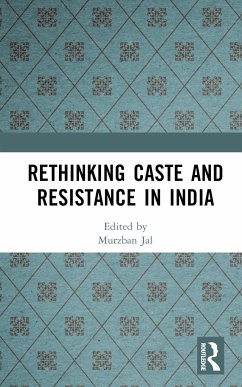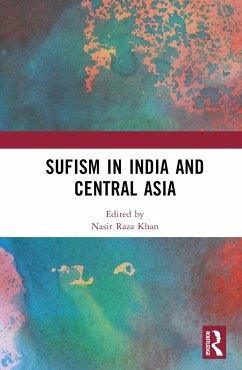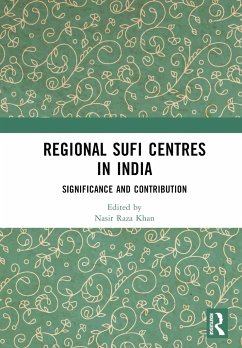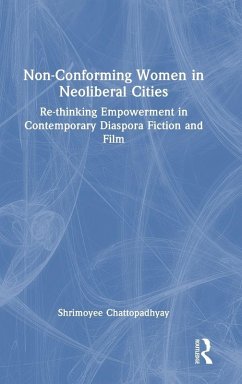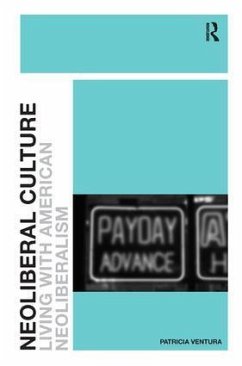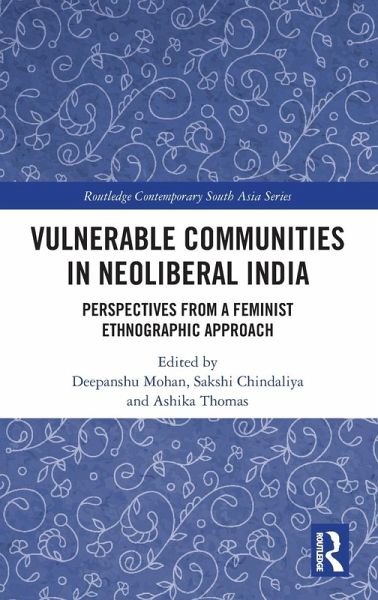
Vulnerable Communities in Neoliberal India
Perspectives from a Feminist Ethnographic Approach
Herausgeber: Mohan, Deepanshu; Thomas, Ashika; Chindaliya, Sakshi

PAYBACK Punkte
79 °P sammeln!
This book offers an ethnographic critique of modern, neoliberal India through studying the daily lives-livelihoods of marginalised communities across the nation. A useful read for scholars and policymakers interested in understanding intersectional applications of development studies in context of the unsecured workforce in India.









